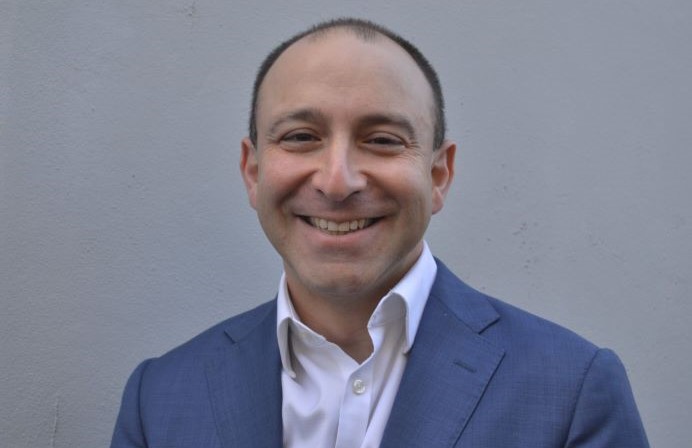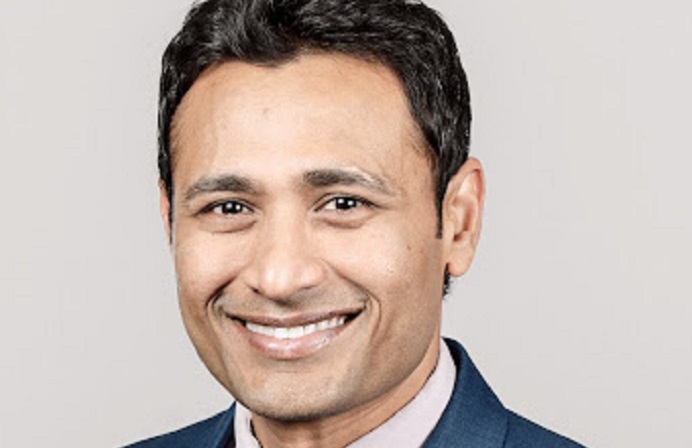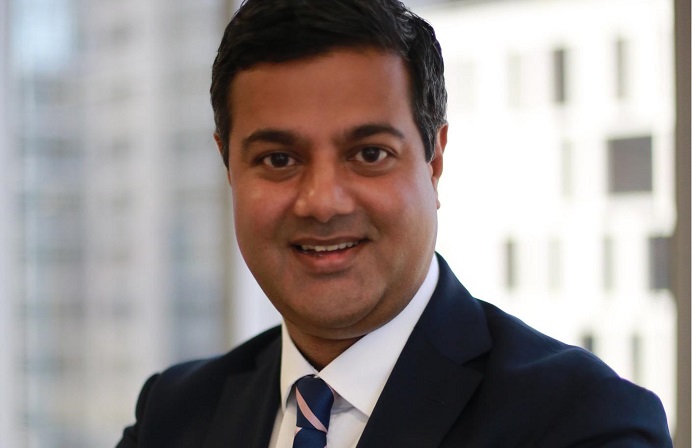
“Last year we saw big data really take centre stage, but I believe insurers are still exploring its potential. With the market dynamics now driven by customer needs and expectation, companies need to be using it to deliver relevant & preventive solutions for customers…”
FST Media: What are your business and digital priorities for the next 6 months?
Tardy: My current priority, not just for the next 6 months but beyond, is guiding AXA Asia’s ongoing transformation to enhance the customer experience, to be empathetic and relevant to our customer needs and preferences through service redesign, digital development, innovation and improved capabilities. That’s a big job, and the next few years will be critical for many companies in our industry. I’m proud that we are in a stronger position to lead change, not only in digital and data, but also in innovating and redefining the customer journey.
FST Media: Where will big data innovation be this time next year?
Tardy: Last year we saw big data really take centre stage, but I believe insurers are still exploring its potential. With the market dynamics now driven by customer needs and expectation, companies need to be using it to deliver relevant & preventive solutions for customers. AXA Asia launched our AXA Lab Asia in Shanghai in 2015 and Data Innovation Lab in Singapore in 2016, and I think over the coming year we will see the dividends of leveraging their big data projects to better support business opportunities.
FST Media: How can insurers best leverage analytics to drive innovation?
Tardy: Innovation in the use of data and analytics are nothing without purpose for our customers. Insurers have to place the customer experience at the centre to act as guiding light in accelerating their efforts. This will enable them to use analytics to simplify the lives for our customers, with predictive solutions to better match their usage behaviour.
One trend we are currently keeping a close eye on is telematics, coordinating the exchange of information with vehicles. AXA is already taking concrete steps to integrate itself into the new ecosystem made possible by the introduction of this technology to become a permanent and competitive player in this space.The host of analytical insights that can be derived from telematics data has still yet to be exhausted! Some benefits of such data insights include incentivising customers to drive more responsibly, or potential to reduce administrative costs associated with claims handling, roadside assistance, payment processing and more.
As another example, we see that health and wellness are increasingly important issues for many of our customers, and so we are actively developing solutions to meet these needs. AXA Hong Kong collaborated with the AXA Asia Lab to develop Xtra by AXA, a free wellness personal coaching app that acts as a motivator and rewards users for living a healthy lifestyle. The success will of course be measured by its reception by the public, but we believe this leverages data to the benefit of our customers and helps move AXA from being just a health payer, to instead being a health partner.
FST Media: What are the main Cybersecurity risks in the insurance industry at the moment?
Tardy: I would believe that a key issue will remain data handling and protection. Big data and the cloud means we are processing more information than ever before, and we must ensure that our security processes evolve to keep pace with new practices. Our AXA Research Fund is supporting interesting research in this area by Professor Bryan Ford, Associate Professor at the Ecole Polytechnique Fédérale de Lausanne. He is working to define a framework to ensure the availability, integrity and privacy of the large volumes of data being processed today. One key factor coming out of this is that a holistic approach is needed, addressing all three aspects, and doing so by building a decentralized system that will safeguard availability, integrity and privacy using a system of trust-sharing among stakeholders. This kind of examination of system infrastructures is key, as any data breach directly impacts a customer’s trust in a brand.
FST Media: How will the internet of things enhance interaction channels for customers?
Tardy: The internet of things has significant potential to open up opportunities for customer interaction. By 2020, there’ll be 200 billion IoT connected devices worldwide, with 95% of these manufactured in one place: China. Inevitably, the country’s startups are working with every type of connected device, and what we are watching closely is how many of these new IoT devices can be managed via another Chinese tech leader: meta-app WeChat.
WeChat is already a fascinating channel with fantastic functionality. ICBC AXA, one of our joint ventures in China, currently provides a simple claims process for health products right in WeChat when a customer follows the account. This has made it so quick and easy to set up a claim, and the team was awarded the China Insurance News Innovation Award as a result.
IoT integration opens up interesting opportunities – at CES Asia this year, we saw how we could text our car (via a chatbot) simply by adding it as a friend on WeChat, enabling us to ask it things like how many kilometres we traveled yesterday, where that great restaurant we stopped at was, or how much time until the car’s next tune-up. This has the potential to add a great depth of value to customers.
FST Media: What technology or innovation is currently the biggest game changer across financial services?
Tardy: It’s hard to pin down to just one as the sheer scale and variety of the Insurtech landscape in Asia alone is almost overwhelming. From usage-based pricing to the sharing economy, digital servicing platforms to blockchain technology, there’s a huge potential for disruption in today’s insurance environment. I think that collectively has changed the game for any player in the market – complacency is not an option. For established players, agility will be the key as we see more insurers partnering with startups, alongside their corporate transformation programs to adopt the same level of entrepreneurial spirits – to be bold and accelerate the speed of change. For AXA, the optimization of health-related telematic data and the adaptation of connected vehicles are specific areas we’re exploring in Asia, for developing ultimate value for our customers.
FST Media: What specific insight does AXA bring to the Asian insurance sector?
Tardy: AXA has a clear commitment to become the most customer centric insurer in Asia. Be it artificial intelligence, robot-powered customer service or connected devices, customer needs will continue to drive the direction of innovation in insurtech development, and our strategic direction has been recognised as the highest ranking insurer (22nd out of 50) in Boston Consulting Group’s tenth annual survey, “The Most Innovative Companies 2015.” With our access to capital, expertise and the startup community in Asia, we are well positioned to learn and partner with insurtech and startup companies in incubating and scaling disruptive solutions to simplify the lives of our customers.
In terms of insurtech innovation, China is undoubtedly the leading market. As the 3rd largest insurance market in the world, close to 10% of the premium was generated by online sales in 2015. In 2017, I foresee this trend will continue to grow, thanks to its vibrant fintech environment and low insurance penetration rate. Insurers with presence in China, including AXA, are all actively engaged in the fintech environment. We’ll also see more tech giants and pure internet insurers offering insurance products with their established online ecosystems.
Looking across the region, Singapore is incubating the next most active fintech environment, with Indonesia, Malaysia and Thailand offering high potential given the high mobile penetration rates.
FST Media: How does AXA engage with fintechs or alternative financial companies?
Tardy: AXA Asia has a deep relationship with the fintech scene with our 3-pronged strategy — Scout, Engage and Invest. Since establishing the AXA Lab in Silicon Valley in 2013, we soon founded the AXA Lab Asia in Shanghai in 2015 to detect emerging trends and potential digital partners across Asia. In the same year, we created AXA Strategic Ventures to directly engage and invest in fintech and startup companies to support the development of disruptive companies from the ground up.
On a global scale, AXA invested EUR 100m to launch Kamet in 2015, an insurtech start up studio dedicated to improving the lives of our customers by incubating, building and scaling disruptive insurance products and services by offering capital and knowhow to fintech and startup companies. With Kamet, AXA nurtures a powerful global ecosystem that connects the expertise, skills and data to put disruptive concepts at work.
FST Media: What is the next big thing for AXA and how will you measure its success?
Tardy: With our ambition to transform AXA to be the most customer centric insurer, we will crystalise our effort in collecting and measuring customer satisfaction. We already collect Instant Customer Feedback (ICF) at specific touchpoints where our customers reach us more frequently. In 2017, we will reinforce our commitment to customer satisfaction by increasing the transparency of our customer feedback to a wider audience. Stay tuned for our further announcement later this year!
FST Media: How do you like to spend your free time?
Tardy: Outside the office, I spend much of my time with my family exploring Hong Kong — our new home base in Asia, especially with my young children. Work life balance is an important pillar to keep me focused and motivated, and I encourage my colleagues to set aside certain time in a day, or week, for their family, passion or hobbies as well!





